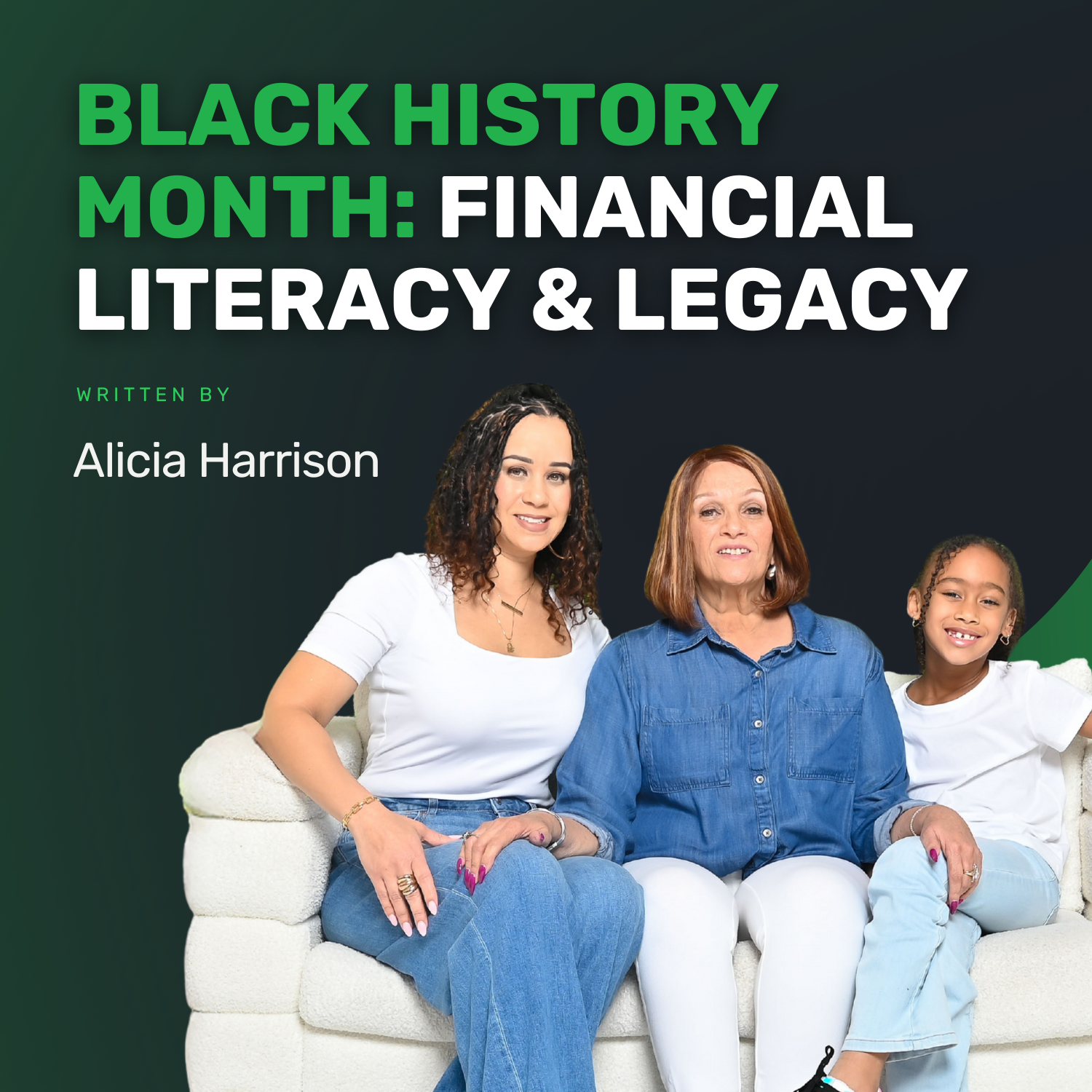
Your First Financial Advisor Was Your Mother
Each May, as we celebrate Mother’s Day, comes an opportunity to reflect on the women who shaped us. Not just the mothers who raised us, but also the grandmothers & aunties who stepped in when no one else could. The single mothers who carried entire households on their shoulders. Their sacrifices, strategies, and survival skills laid the foundation for how we see the world—and how we see money. We were learning by watching them, developing our money script.
Money Lessons From the Women Who Raised Us
Some of us learned from mothers who budgeted every penny in a checkbook or by using an envelope system. Others watched our single moms stretch a modest paycheck into meals, school supplies, and birthday gifts—somehow always making magic out of what looked like nothing. Grandmothers taught us the importance of saving, tithing, giving, and independence. I remember my grandmother constantly preaching to me that as a woman, I should always have my own money. Our mothers and grandmothers were quiet wealth builders in their own right, often without formal training or access to financial systems that supported them.
These lessons—intentional or not—became our money script.
What’s a Money Script?
A money script is the set of beliefs and behaviors we subconsciously carry about money, formed in childhood at the kitchen table, grocery store aisles, and late-night conversations about bills.
If your mother was constantly stressed about money, you may associate money with fear or scarcity.
If your grandmother emphasized saving “for a rainy day,” you might be cautious and risk-averse.
If your mother taught you to hustle for every dollar, you may tie your self-worth to financial productivity.
Your money script doesn’t just shape your spending—it can shape the legacy you leave. If we pass along unexamined beliefs, we risk handing our children the same silent stress we absorbed growing up. But with awareness and planning, we can pass along confidence, knowledge, and wealth.
For example, my grandmother was private about her spending. After back-to-school shopping trips, we would hide some purchases in the car to conceal the total amount spent from my grandfather. She was also a big couponer, sorting through the stacks of coupon ads found in the Sunday paper. I remember her motto was to only purchase items on sale or with a coupon. Part of my money script mirrored what I saw. I didn’t want my partner, or anyone else for that matter, to know how much I really spent. I also fell into the habit of only shopping for sale items and not buying what I wanted. This mentality led to a habit of exclusively buying sale items led to unwanted purchases driven by the thrill of a deal.
Our money script can shape how we judge, admire, or resent our mothers’ financial choices—even as adults. And if we don’t take the time to explore these inherited beliefs, we risk passing the same script to our own children.
How We Can Empower Mothers—Rewrite the Script
If our mothers, aunties, and grandmothers taught us how to survive with money, it’s our responsibility to teach the next generation of mothers how to thrive.One of the most powerful tools we can offer is financial literacy that is accessible, relatable, and actionable.
1. Financial Literacy for All Mothers
We need to meet mothers where they are—whether they're juggling multiple jobs, managing a household solo, or starting to plan for retirement.
Empowerment starts with knowledge. That’s why sharing engaging, practical resources is key:
- Books like The Psychology of Money by Morgan Housel, You Are a Badass at Making Money by Jen Sincero, Think and Grow Rich: A Black Choice by Dennis Kimbro, and Girl, Make Your Money Grow! by Glinda Bridgforth and Gail Perry-Mason provide culturally relevant insights that inspire both mindset shifts and financial action.
- Websites like moneyscriptwealth.com offer valuable guidance for families seeking to build generational wealth.
- Podcasts like The Money Script Podcast open the door to real, relatable conversations about money.
- Platforms like NerdWallet provide tools and comparisons that help demystify credit scores, debt management, budgeting, and more.
By integrating these resources into our communities and conversations, we can equip mothers with the confidence and knowledge to make empowered financial decisions—not just for today, but for generations to come.
2. Children’s Financial Programs That Start the Conversation Early
By normalizing conversations about money in childhood, we don’t just educate the next generation—we grow forward together. Routines that include parent-child activities allow for a shared understanding and begin to rewrite the family money script together. The Four Money Bears by Mac Gardner, or O.M.G. Official Money Guide for Teens or Money Ninja for older kids.
3. Support Single Mothers and Caregivers Holistically
Financial literacy is worthless if moms don’t have time or mental space to use it. That’s why our communities must continue fighting for policies and support systems—childcare subsidies, food access, fair wages, healthcare—that allow single moms to move from surviving to building.
Honor the Women Who Taught You
This Mother’s Day, think back to your first financial memory. Was it clipping coupons with Grandma? Watching your mom balance the checkbook after work? Saving up for something special with your Auntie’s guidance?
These women gave you a script. Now it’s time to read it with fresh eyes, rewrite what no longer serves you, and pass on something even stronger.
Because when you empower a mother, you don’t just change one life—you influence generations.

.svg)





